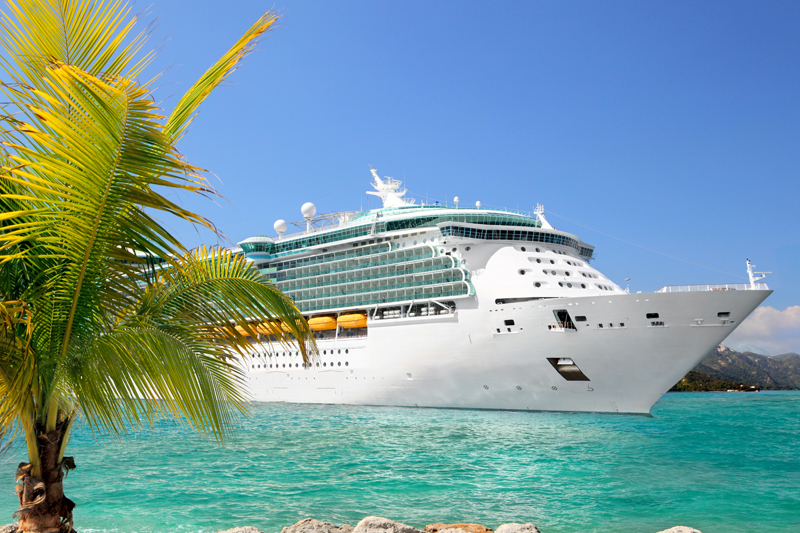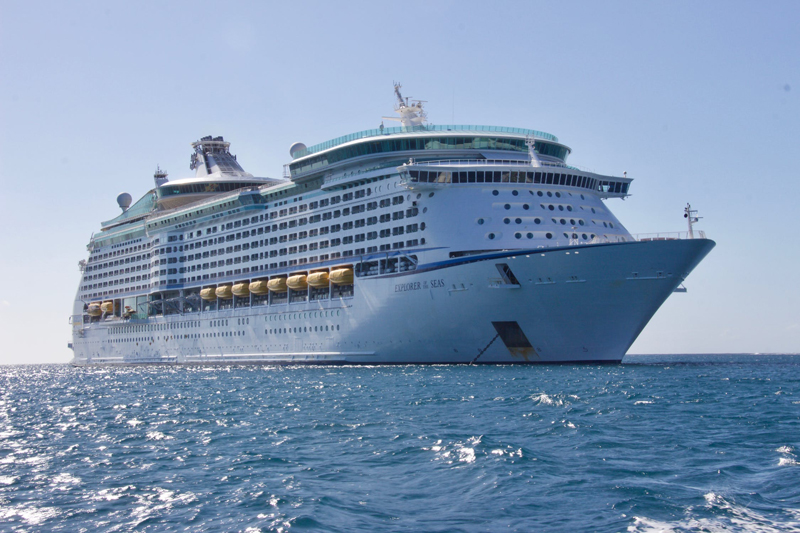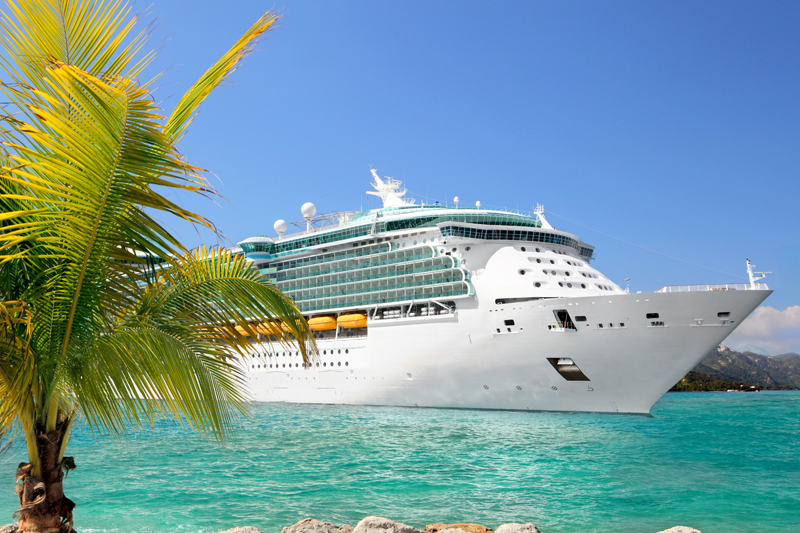9 Mistakes First-Time Cruisers Often Make

Cruise vacations are significantly different than land-based holidays. For first-time cruisers, planning a fun-filled cruise vacation can be overwhelming. It’s often tricky for new cruisers to figure out which ship and stateroom is best, plus there are some critical planning requirements. It’s essential to avoid common mistakes that can significantly impact or ruin your cruise experience.
Here are nine major mistakes first-time cruisers make and some tips on how to avoid them.
1. Forgetting To Check Documentation Early. As soon as you begin thinking about taking a cruise, confirm the documents needed for the trip. You will be denied boarding if you do not have the proper documentation necessary for your cruise. Check with your cruise line or your travel advisor to see what is required. In addition, check the expiration date on your passport far in advance. Some cruise lines now require passports to be valid for at least six months after your cruise ends. Certain countries insist on that as well.
In addition to passport requirements, cruise itineraries may also require visas which can take time to obtain. If you’re traveling with children, there may be additional documents you are required to bring. Single parents or a married parent traveling solo with their children may need a notarized letter from the other parent giving permission for the trip. This requirement may also apply to grandparents traveling without their grandchildren’s parents and parents bringing a child's friend on a cruise.
2. Choosing A Cruise Ship Solely Based On Price. All cruise ships are not created equal, so don’t purchase a cruise vacation solely based on price. It’s important to understand the ship and its amenities, the types of vacationers it attracts, and the itinerary you’ll be sailing. Some older ships have few of today’s more desirable amenities, such as specialty restaurants and exciting waterparks. Many vacationers also like to cruise with individuals that are somewhat like themselves. Certain cruise lines and ships tend to attract many families with children, while older guests often gravitate towards others. Consider using a travel agent when booking your cruise. A good cruise travel agent understands the differences between cruise lines, specific ships, their amenities, and the various itineraries available.
3. Booking The Wrong Stateroom. Choosing a good stateroom can make a big difference in cruise enjoyment, so don’t cheap out by selecting a problematic stateroom simply because it’s less expensive. Some cruise cabins are almost guaranteed to be noisy. Review the deck layouts above and below the cabin you’re considering to see what’s located over and under your room. Stay away from booking staterooms above or below nightclubs, theaters and show lounges, bars with live music, crew work areas, self-service laundries, sports venues, children’s program areas, elevators, kitchens, and the main dining rooms and buffet areas. Some frequent cruise guests also shun staterooms below the ship’s pool to avoid the early morning sound of lounge chairs being arranged on deck.
If you decide to book a “guarantee” stateroom due to the lower price, be aware that you could end up with a cabin in one of the noisy areas mentioned above. For those prone to motion sickness, it’s best to book staterooms on a lower floor in the middle section of the ship.
4. Poor Transportation Choices. It’s important to arrive at least a day before your ship sets sail, and not just during the winter months. Arriving a day early provides cushion time to guard against any weather, traffic, or mechanical problems that could interfere with your flight - whether you're driving or flying. Early arrival involves the additional expense of a hotel room, but the peace of mind it brings is often well worth the cost. In addition, arriving early will give you time to explore your embarkation port and nearby locales.
If you can't arrive a day before your ship's departure for some reason, it’s important to choose the right flights in order to avoid nail-biting stress or possibly even missing your ship. Direct flights can be more expensive, but that’s not always true. Use a good travel agent or book your flights immediately after you purchase your cruise for the best results.
If connecting flights are mandatory for your cruise, allow plenty of time for connections. While a 40-minute connecting time between flights is often considered legal by the airlines, it will give you little cushion if there’s a weather or mechanical delay. If you’re flying to your embarkation port on the same day your cruise departs, it’s important to play it safe and allow about two hours or so for connections. Extra time is particularly essential when traveling with children, as getting from gate to gate often takes longer.
In addition, allow plenty of time to arrive at the airport on disembarkation day. If your cruise port is very close to the airport, it’s still wise to select flights after 11 a.m. in the morning – even if you only have carry-on luggage. If your trip to the airport involves a significant drive, choose flights that depart after noon.
5. Ignoring The Weather - Or The Season. Carefully consider which aspects of cruising are most important to you, and remember that ports of call aren’t guaranteed. First-timers choosing their cruise primarily based on the ship’s itinerary should research the weather carefully and avoid hurricane season. The same is true for selecting the best week for your cruise. If you want to cruise when fewer children are onboard, avoid spring break periods, summer months, and holiday seasons. However, if you're cruising with children, those can be the best times to sail.
6. Neglecting Advance Dining, Shore Excursion, And Activities Planning. Today’s cruise ships are similar to small floating towns carrying as many as five thousand people. Typically, guests wish to dine at the same times, so making main dining room arrangements and specialty dining reservations in advance is important.
In addition, popular ship-sponsored tours also often sell out well before departure. Research each port of call before your cruise and review the shore excursions your cruise line offers. Message boards and private Facebook groups for individual cruise lines can be great sources of information. If several tours will make or break your cruise experience, book those as soon as possible. In addition, make sure to check out shore excursions offered by independent tour operators in your ports of call. These can be excellent experiences, and it’s often possible to save a lot of money as well.
Some cruise lines also allow guests to sign up for shows and onboard activities in advance. Check your cruise line’s policies since some popular shows can book quickly on large ships. If you haven’t signed up before embarkation, do so as soon as you board your ship.
7. Passing On Travel Insurance. In most cases, travel insurance can protect your financial investment against such things as canceling your cruise due to illness or a death in your immediate family, trip interruption due to illness, missing the ship due to airline delays, and other factors. It will also cover medical attention should you need it while you are away. Deciding to save money by declining trip insurance could cost you significantly if things go wrong. Consider purchasing cruise insurance from a third party since it allows you to wrap in your airfare if you purchased it independently. Read your policy carefully before purchasing, and ask questions to make sure you are covered for all contingencies.
8. Overpacking Or Underpacking For Your Cruise. Cruise ship staterooms are relatively small, and storage space is at a premium. There’s a tendency to try to bring nearly everything you own on vacation, just in case you might want to wear it. To avoid overpacking, make a list of what you’ll need in advance and start packing well before your trip. Pack mix-and-match clothing that you can layer, medications, gear needed for excursions, extra toiletries, and outfits for any formal nights. At the same time, don't worry so much about overpacking that you neglect to bring things you'll need on your cruise and shore excursions. If you plan to check luggage, pack items such as your swimsuit, medications, valuables, and electronics in your carry-on luggage.
9. Failing To Put Phones On Airplane Mode. Cell service companies generally offer international plans that provide coverage in destinations visited by cruise ships. Check to see what’s available before departing on your cruise. If you decide not to purchase an international plan, place your phone on airplane mode and use Wi-Fi instead. Most cell phone international plans do not cover usage at sea, and roaming charges can be stratospheric. Check out Wi-Fi packages available through your ship, and do your calling and Internet surfing that way. In addition, make sure to download your cruise line’s smartphone app before boarding.
Here are nine major mistakes first-time cruisers make and some tips on how to avoid them.
1. Forgetting To Check Documentation Early. As soon as you begin thinking about taking a cruise, confirm the documents needed for the trip. You will be denied boarding if you do not have the proper documentation necessary for your cruise. Check with your cruise line or your travel advisor to see what is required. In addition, check the expiration date on your passport far in advance. Some cruise lines now require passports to be valid for at least six months after your cruise ends. Certain countries insist on that as well.
In addition to passport requirements, cruise itineraries may also require visas which can take time to obtain. If you’re traveling with children, there may be additional documents you are required to bring. Single parents or a married parent traveling solo with their children may need a notarized letter from the other parent giving permission for the trip. This requirement may also apply to grandparents traveling without their grandchildren’s parents and parents bringing a child's friend on a cruise.
2. Choosing A Cruise Ship Solely Based On Price. All cruise ships are not created equal, so don’t purchase a cruise vacation solely based on price. It’s important to understand the ship and its amenities, the types of vacationers it attracts, and the itinerary you’ll be sailing. Some older ships have few of today’s more desirable amenities, such as specialty restaurants and exciting waterparks. Many vacationers also like to cruise with individuals that are somewhat like themselves. Certain cruise lines and ships tend to attract many families with children, while older guests often gravitate towards others. Consider using a travel agent when booking your cruise. A good cruise travel agent understands the differences between cruise lines, specific ships, their amenities, and the various itineraries available.
3. Booking The Wrong Stateroom. Choosing a good stateroom can make a big difference in cruise enjoyment, so don’t cheap out by selecting a problematic stateroom simply because it’s less expensive. Some cruise cabins are almost guaranteed to be noisy. Review the deck layouts above and below the cabin you’re considering to see what’s located over and under your room. Stay away from booking staterooms above or below nightclubs, theaters and show lounges, bars with live music, crew work areas, self-service laundries, sports venues, children’s program areas, elevators, kitchens, and the main dining rooms and buffet areas. Some frequent cruise guests also shun staterooms below the ship’s pool to avoid the early morning sound of lounge chairs being arranged on deck.
If you decide to book a “guarantee” stateroom due to the lower price, be aware that you could end up with a cabin in one of the noisy areas mentioned above. For those prone to motion sickness, it’s best to book staterooms on a lower floor in the middle section of the ship.
4. Poor Transportation Choices. It’s important to arrive at least a day before your ship sets sail, and not just during the winter months. Arriving a day early provides cushion time to guard against any weather, traffic, or mechanical problems that could interfere with your flight - whether you're driving or flying. Early arrival involves the additional expense of a hotel room, but the peace of mind it brings is often well worth the cost. In addition, arriving early will give you time to explore your embarkation port and nearby locales.
If you can't arrive a day before your ship's departure for some reason, it’s important to choose the right flights in order to avoid nail-biting stress or possibly even missing your ship. Direct flights can be more expensive, but that’s not always true. Use a good travel agent or book your flights immediately after you purchase your cruise for the best results.
If connecting flights are mandatory for your cruise, allow plenty of time for connections. While a 40-minute connecting time between flights is often considered legal by the airlines, it will give you little cushion if there’s a weather or mechanical delay. If you’re flying to your embarkation port on the same day your cruise departs, it’s important to play it safe and allow about two hours or so for connections. Extra time is particularly essential when traveling with children, as getting from gate to gate often takes longer.
In addition, allow plenty of time to arrive at the airport on disembarkation day. If your cruise port is very close to the airport, it’s still wise to select flights after 11 a.m. in the morning – even if you only have carry-on luggage. If your trip to the airport involves a significant drive, choose flights that depart after noon.
5. Ignoring The Weather - Or The Season. Carefully consider which aspects of cruising are most important to you, and remember that ports of call aren’t guaranteed. First-timers choosing their cruise primarily based on the ship’s itinerary should research the weather carefully and avoid hurricane season. The same is true for selecting the best week for your cruise. If you want to cruise when fewer children are onboard, avoid spring break periods, summer months, and holiday seasons. However, if you're cruising with children, those can be the best times to sail.
6. Neglecting Advance Dining, Shore Excursion, And Activities Planning. Today’s cruise ships are similar to small floating towns carrying as many as five thousand people. Typically, guests wish to dine at the same times, so making main dining room arrangements and specialty dining reservations in advance is important.
In addition, popular ship-sponsored tours also often sell out well before departure. Research each port of call before your cruise and review the shore excursions your cruise line offers. Message boards and private Facebook groups for individual cruise lines can be great sources of information. If several tours will make or break your cruise experience, book those as soon as possible. In addition, make sure to check out shore excursions offered by independent tour operators in your ports of call. These can be excellent experiences, and it’s often possible to save a lot of money as well.
Some cruise lines also allow guests to sign up for shows and onboard activities in advance. Check your cruise line’s policies since some popular shows can book quickly on large ships. If you haven’t signed up before embarkation, do so as soon as you board your ship.
7. Passing On Travel Insurance. In most cases, travel insurance can protect your financial investment against such things as canceling your cruise due to illness or a death in your immediate family, trip interruption due to illness, missing the ship due to airline delays, and other factors. It will also cover medical attention should you need it while you are away. Deciding to save money by declining trip insurance could cost you significantly if things go wrong. Consider purchasing cruise insurance from a third party since it allows you to wrap in your airfare if you purchased it independently. Read your policy carefully before purchasing, and ask questions to make sure you are covered for all contingencies.
8. Overpacking Or Underpacking For Your Cruise. Cruise ship staterooms are relatively small, and storage space is at a premium. There’s a tendency to try to bring nearly everything you own on vacation, just in case you might want to wear it. To avoid overpacking, make a list of what you’ll need in advance and start packing well before your trip. Pack mix-and-match clothing that you can layer, medications, gear needed for excursions, extra toiletries, and outfits for any formal nights. At the same time, don't worry so much about overpacking that you neglect to bring things you'll need on your cruise and shore excursions. If you plan to check luggage, pack items such as your swimsuit, medications, valuables, and electronics in your carry-on luggage.
9. Failing To Put Phones On Airplane Mode. Cell service companies generally offer international plans that provide coverage in destinations visited by cruise ships. Check to see what’s available before departing on your cruise. If you decide not to purchase an international plan, place your phone on airplane mode and use Wi-Fi instead. Most cell phone international plans do not cover usage at sea, and roaming charges can be stratospheric. Check out Wi-Fi packages available through your ship, and do your calling and Internet surfing that way. In addition, make sure to download your cruise line’s smartphone app before boarding.

Related Articles
Editor's Picks Articles
Top Ten Articles
Previous Features
Site Map
Content copyright © 2023 by Nancy Schretter. All rights reserved.
This content was written by Nancy Schretter. If you wish to use this content in any manner, you need written permission. Contact Nancy Schretter for details.





